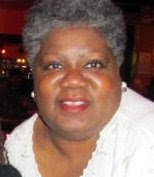The Importance of Telling Our Story
I went to see the movie, The Gospel, last weekend. I have been psyched about this project since I first heard of it months ago on TBN. I sent emails to several friends urging them to go during this first weekend when the entertainment industry pays the most attention to the box office stats. I wanted to do whatever I could to help this movie succeed. All the while, down in my spirit, was a nagging question. Why was this movie so important to me? What made this movie worth the effort and energy? The answer was simple. Finally, there was a movie being produced by my sistahs and brothas, backed by a major Hollywood studio (Screen Gems) that unashamedly depicts my experience with God that is set in my church setting with my music and my artists. It is so important that people tell their own stories. Telling our stories will mean the difference between life and death for our future generations.
In the passage above, Moses tells the people that a day will come when children will ask why their faith was so important to them. On that day, he said they should tell them about how God brought them from destitution and despair to prosperity, protection, and wholeness. Likewise, for the very same reason, we should tell our children our story. Not only must we tell our salvation story as a people, but each family must tell its family story. Our children need to know the bridges and landmarks that have brought us over. They need to know of the folks who paved the way before them.
My story…
I am a born and bred “Bapticostal” minister, the firstborn of working class parents, and the first in my entire family to attend college. I grew up in a large (but nowhere near mega-sized) urban Baptist church that was both faith station and social center. Our worship style was the urbanized expression of the slave religious experience. We had the well-robed choirs and uniformly dressed ushers in the aisles that gave the U.S. Marines serious rivalry in the area of precision drilling. We were a Bible toting, scripture quoting, emotional preaching, sho’nuff singing, fall out shouting, dancing, praise Him to the highest congregation. Yet our worship was looked down upon by whites and affluent blacks alike as an uncivilized throwback to the jungles of Africa.
Until recently, I rarely saw my faith story told publicly in a positive light. Though Black preaching has been seen as "a unique cultural idiom", the overall worship experience has not been valued. The Sunday School materials of the 50s and 60s showed little white girls and boys interacting with a blonde hair, blue eyed Jesus. In the early 70s, I worked in a white church where the stained glass window had a shackled woolly-haired blue-black slave boy kneeling at the feet of a standing Abraham Lincoln eluding to Lincoln being the great Savior-Emancipator. During the early 80s, I became the Associate Pastor of a predominately white church. My black pastor and congregation came the white church for my installation service. The black folks came in great numbers. Our choir was beautifully robed choir. The deacons, church mothers, nurses, and ushers were smartly uniformed. All came to celebrate and share the worship experience. Though my new congregation went out of their way to be warm and polite, the discomfort of many with my style of worship was palpable. Our sacred expressions were not appreciated. We were too noisy, too emotional. The whispered comments were painful. Twenty years later, I teach Western Religions in a major university. The textbook selected for my course uses subtle imagery to stereotypically depict the black religious experience as a caricature of its authentic self.
“You can’t tell it. Let me tell it…what He’s done for me.”
This movie along with Tyler Perry’s “Madea” series (including his recent cinematic release, “Diary of a Mad Black Woman”), and the Urban Works Entertainment productions are important movies to support because we are telling our salvation story with honesty, contextual integrity, and reverence for the God of our understanding. Our story is saving knowledge. When the Israelites stopped telling their story, the absence of saving knowledge became a key factor to their downfall. Israel was deported and Judah went into exile. I feel certain that the absence of us telling our salvation story has led to the erosion of the values African-Americans once held sacred.
Interesting thing happened while at the movies. Because the contemporary praise and worship genre has now crossed all Christian creeds, social classes, and ethnic cultures, EVERYBODY was into “my” experience.
If anything I said stuck a cord with you, please share. Only you can tell your story.


1 Comments:
Pastor Joyce,
You are truly a very eloquent writer. I love this blog, the way it is layed out, and most of all your writing! Incredible!
I agree that we must tell our story...we must even tell it to ourselves. I believe that, spiritually, words are living things...and once we speak them - we give life to them! By speaking words of life, we bring life to those around us.
I contrast that to the explicit, violent, and misogynistic (sic) lyrics of so many of the songs out today by African American performers. Our people listen to this stuff 24/7 and we wonder why 80% of black children are born out of marriage, why domestic violence is increasing, why 25% of our men are in jail (across the board age wise), why black women have the highest HIV infection rate of any population group - words of death permeate our community.
Thank you for reminding us to bring the story of salvation - words of Life.
Post a Comment
<< Home